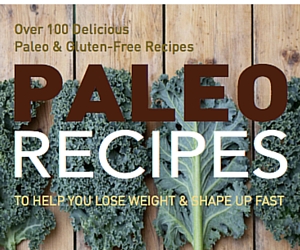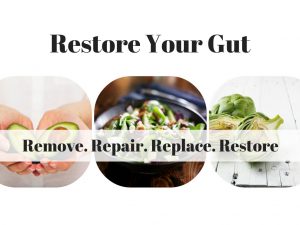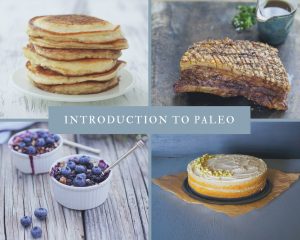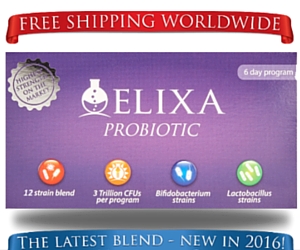Click here to download the different episodes of the Eat Better podcast via iTunes or see below for episode details.
If you have listened in and enjoyed the podcast, please consider leaving us a review on iTunes. Apparently it’s not that easy so this video shows you how to do it! Thank you 🙂
Episode 10 – Karl Seddon (Elixa Probiotic Founder)
In this episode we talk to Karl Seddon of Elixa Probiotic, who has developed a new way of delivering large doses of bacteria to the gut.
Listen or download HERE, or find it on iTunes HERE.
We talk about:
- Why we’re just scratching the surface of what can be achieved with probiotics
- Karl’s own experiments with diet, microbiome and cognitive performance
- Why the evidence for manipulation of the microbiome isn’t as good as we might think
Buy Elixa probiotics HERE
Karl’s work on Free the Animal: http://freetheanimal.com/2015/05/prebiotic-probiotic-mercenaries.html
In the episode, we also mention the work of Grace Liu, who runs The Gut Institute
We mentioned her 60 day “bionic fibre” program below:
- Acacia root – 1 tbsp. with dinner
- Glucomannan – 1/2 tbsp. with breakfast and dinner
- Inulin – 1 tbsp. with breakfast
These doses would need to be worked up to, and tailored to your own needs and any gut or health problems. As ever, podcasts do not replace advice from your own qualified medical practitioner who will be familiar with your own individual health concerns.
Episode 9 – Darryl Edwards AKA The Fitness Explorer
Darryl Edwards (aka The Fitness Explorer) joins us for episode 9 to talk about:
- His new book, Paleo from A to Z
- Health Unplugged, the UK’s first paleo/primal conference
- Primal Play, Darryl’s approach to movement and fitness
- The UK paleo scene
- Why he still focuses on the traditional paleo food guidelines
Find this episode on iTunes HERE
Health Unplugged will return this year on October 31st, and will potentially be a two day event. For more information, go to the website: http://www.healthunplugged.co.uk/
Find Darryl’s books:
Paleo from A to Z
Paleo Fitness
- The Fitness Explorer Website: http://www.thefitnessexplorer.com/
- Twitter: https://twitter.com/FitnessExplorer
- Facebook: https://www.facebook.com/FitnessExplorer
- Instagram: https://instagram.com/fitnessexplorer/
Episode 8 – Doc’s Opinion
In Episode 8 of the Eat Better podcast, Tommy and I talk with Dr. Axel Sigurðsson of Doc’s Opinion (www.docsopinion.com) about cholesterol, diet, statins, and heart disease.
We cover:
- What useful information you can get from a basic cholesterol test
- Why focusing on “good” and “bad” cholesterol doesn’t really predict heart disease
- What dietary and lifestyle modifications you should make if you have heart disease
- The pros and cons of taking statins
Find this episode on iTunes HERE
Tommy’s Notes
Early on we discuss the triglyceride:HDL ratio, which you can get by diving your triglyceride level by your HDL level. Both of these can be found on the basic cholesterol test from your GP. Using UK units (mmol/L), a ratio below 0.87 is considered ideal. Click HERE for an article where Axel discusses those numbers.
We also discuss the pitfalls of using LDL (aka “bad”) cholesterol as a marker of heart disease, even though this is what doctors often use to decide if somebody should be on a statin. Axel has written an article about this HERE.
Later on we discuss ways to reduce heart disease risk through diet and lifestyle. Because of the need to regulate insulin to minimise heart disease risk, Axel recommends:
- A diet rich in fresh vegetables and fish
- A diet low in (processed) carbohydrates
- Focusing on stress modification
We also discuss some of the pitfalls of statins. The evidence behind using them to prevent heart attacks (primary prevention) is pretty thin, and the downsides probably outweigh any potential benefits. HERE is a fascinating recent paper which details why statins may (this is largely still theoretical) actually increase the risk of heart disease by interfering with mitochondrial function and vitamin K2 metabolism.
There is also increasing evidence to suggest that, particularly as age increases, higher cholesterol levels reduce overall mortality, and are particularly important for things like brain function and reducing dementia risk. The Norwegian HUNT 2 study that I mention can be found HERE. Though this is just an observational study, they found no increase in risk of death or heart disease with increasing cholesterol levels, and in women especially, those with the highest cholesterol had the lowest risk of death.
As we don’t have a video for this week, I highly recommend that you want Ivor Cummins’ talk on the cholesterol conundrum. It’s fascinating, explains how cholesterol really works, and details the evidence behind how we can eat to reduce the risk of heart disease:
Episode 7 – Fish
In episode 7 of the Eat Better Podcast, Tommy and I discuss fish:
- Why is fish an important part of the diet?
- Where should you get your fish from?
- How much should you worry about dioxins and mercury?
- What about fish oil supplements?
Find this episode on iTunes HERE or watch the video:
Tommy’s Notes
One part of the discussion got lost in the edit: Many trials have shown that adding DHA (and EPA) to the diet (as krill oil, cod liver oil, or fish oil) can both increase HDL and reduce triglycerides. This lowers the Triglyceride/HDL ratio, which is an important potential marker of future heart disease.
Fish oil supplements
At the end we touch upon fish oil supplements. As with most nutrients, it is best to get your DHA and EPA from whole foods. The benefits of real seafood have often been found to be better than supplementing. Two or three portions of fatty fish per week should be plenty for most people, as we mention in the podcast. If you’re not a regular fish eater or want to boost your DHA intake for various reasons, I personally think that minimally-processed cod liver oil is best. Get the best you can afford, and shop around, as analyses have shown that fish oil supplements are often oxidised (damaged), and you may not get the DHA/EPA you pay for (see HERE for an example).
Fermented cod liver oil is very popular at the moment, but that process potentially increases the likelihood that the DHA will no longer be in the ideal sn-2 position I mention. It may also make the fats more likely to be rancid and oxidised. However, the Weston A. Price foundation have released an analysis of Green Pasture fermented cod liver oil, which showed no evidence of rancid fats.
On the other side of the argument, HERE is a release from Nordic Naturals describing their take on fermented fish oils. This post on Cod Liver Oil describes what I take and Tommy takes Icelandic Lysi. Another minimally processed oil is Dropi: http://www.truewestfjords.is/
Finally, there is also some debate about vitamin D to A ratios in cod liver oils, with a risk of relatively large doses of vitamin A, which can inhibit the proper function of vitamin D. Norwegian and Icelandic bottled cod liver oils usually contain 1,000-1,200IU of vitamin D (400-600% of recommended daily intake) and 2,000-2,500IU of vitamin A (around 100% of recommended daily intake) per tablespoon, in a 1:2 ratio. This is well within appropriate target doses for most people. However, it is worth checking your own brand, and supplementing based on your own needs.
If you are supplementing with any product that includes vitamin D and A (like cod liver oil), it is important to make sure you are getting enough vitamin K2, as the three play important roles together. Get more K2 from:
- Grass-fed full-fat dairy
- Eggs, particularly free-range eggs (and probably fish eggs)
- Goose or duck liver
- Natto
Episode 6 – “Owen Raybould on Mood and Food” Find this episode on iTunes or Podomatic
In episode 6 of the Eat Better podcast, Owen Raybould of Ancestral Health and Nutrition talks about food and mood.
In response to previous requests to improve sound quality, we upgraded our microphone system, which completely failed! We apologise sincerely, and will fix this for next time.
Hopefully this won’t stop you listening to Owen talking about his work with mental health charities, as well as some tips on how to eat better in the context of depressive illnesses.
Tommy’s Notes
- Owen and I discuss a review paper on the interaction between genetic mutations that may improve short-term defence against infections, but increase the risk of depressive symptoms in the context of chronic stress. Find it here: The evolutionary significance of depression in Pathogen Host Defense (PATHOS-D).
- Later on I discuss some interesting primate research that highlights the interaction between hyper-palatable foods and stress, and their effect on hormone function, which can later increase the risk of mood problems. Find this paper here: Social stress interacts with diet history to promote emotional feeding in females.
- Owen also discusses the work of Julia Ross, and recommends this talk. She begins to talk about sugar and addiction around minute 28:
https://www.youtube.com/watch?v=5LLsVBqrq8c
Find Owen on Twitter.
Ancestral Health and Nutrition on Facebook.
For more information on Owen’s crowdfunding initiative, go here: http://www.crowdfunder.co.uk/nutrition-for-health
Disclaimer: Podcasts do not replace advice from your own qualified medical practitioner who will be familiar with your own individual health concerns.
Episode 5 – “Going Back to go Forwards”
Episode 5 of the Eat Better podcast looks at the origins of the Paleo diet, why that’s different from what people on the paleo diet are eating nowadays, and whether that matters.
Find it on iTunes HERE or listen below.
Tommy’s Notes
This discussion revolves around an article on Tommy’s blog, which can be found HERE.
It’s interesting to note that the original “Paleo” diet, as described by Eaton and Konner, differed from what we talk about today:
- It was low in saturated fat
- It was low in sodium
- It was “alkaline”
Surprisingly, many of the original recommendations could potentially be considered outdated. Most people nowadays agree that those are not necessarily important aspects of a healthful diet. However, these are the recommendations largely followed by the scientific trials of the paleo diet that we have seen to date. Despite this, we now know that saturated fat is an important precursor to normal hormonal function, which is underlined by the fact that when we restrict fat in the diet, the body makes extra saturated fat to compensate. Too much salt restriction is also implicated in worse levels of heart disease. The original paleo diet was also often high in carbohydrate, and included pulses.
Importantly, I think this shows two things:
- People are still seeing great results from paleo despite having moved away from the original paleo descriptions of Eaton and Konner, and later Loren Cordain.
- We have the ability to thrive on a huge spectrum of varied diets, some of which include things traditionally excluded on the paleo diet.
A video of Boyd Eaton discussing the last 30 years of his personal version of the paleo diet can be found here:
Later on, we mention an article I wrote about the Horizon Sugar vs Fat programme, which you can find HERE.
We also discuss a lecture given by Dr. Georgia Ede at the Ancestral Health Symposium in 2012 about the lack of evidence of the necessity of vegetables in the diet:
Episode 4 – “Chris Kelly Talks Gut”
Our second guest on the Eat Better podcast is Chris Kelly from Nourish Balance Thrive. Chris is a Functional Diagnostic Nutrition practitioner, and professional mountain biker.
Find this episode on iTunes HERE
In the episode, we cover:
- How he wrecked and fixed his own gut, and how he helps others fix theirs.
- Why a nutrient-dense diet is the starting point for those struggling with gut issues.
- How to mitigate the effects that extreme endurance exercise can have on the gut.
- Why sometimes it’s better to get some basic tests rather than hit a wall and keep struggling.
- Why blue-blockers aren’t the answer to all your sleep problems.
Below are a list of supplements that Chris uses personally, which he feels most people (particularly if recovering from a gut health problem) could benefit from:
- Thorne FX AM/PM multivitamin complex
- Primal Defense Ultra 90 probiotic, alternated with Prescript-Assist and Equilibrium
- Nordic Naturals Arctic Omega fish oil
- Alpha Lipoid Acid (“occasionally, ‘cos it’s pricey”)
Chris also talks about using a changeable LED strip light (like this one) to help maintain his circadian rhythm.
Chris and his wife Julie have their own podcast, which you can find HERE. It’s a great podcast aimed at people looking to have optimally healthy babies and families. You can listen to two episodes featuring Tommy here http://www.nourishbalancethrive.com/podcasts/paleo-baby/babies-science-part-i-dr-tommy-wood/
Due to some technical issues this week, we couldn’t get a three-way video link done for a YouTube version, so instead you can watch Chris’ tips on how to leave a review for the Eat Better podcast!
Episode 3 – “Strength Training for Health”
Episode 2 – “Everybody’s Right About Ketones”
The Eat Better podcast returns with a look at ketogenic diets (YouTube video at the bottom). Do read the notes below, because I forgot to mention a couple of things!
Find this episode on iTunes HERE
For most people, starting with a diet that removes processed carbohydrates and oils, and focuses on vegetables, and high quality meat and fat, as well as addressing things like sleep, stress, and exercise, will get them the results they want in terms of long-term health.
If you are struggling with long-term health and chronic disease, consider looking at the work of:
- Chris Kresser: chriskresser.com
- Sarah Ballantyne: thepaleomom.com
These guys both have a huge amount of disease-specific information on their websites. The key here seems to be healing any chronic inflammatory problems (gut permeability, autoimmune disease etc), before attempting something like a ketogenic diet.
Disclaimer: Podcasts do not replace advice from your own qualified medical practitioner who will be familiar with your own individual health concerns.
Notes:
The Ketogenic diet was developed at the Mayo clinic in the 1920’s, not 20 years ago. Sorry, slip of the tongue.
When we’re talking about eating lots of vegetables during a ketogenic diet, we really mean it. You can eat almost 1kg of low-carb veggies (like salad, greens, cabbage, aubergine, onions, and cauliflower etc) per day without eating more than 50g of carbs in a day, as they did in this trial:
Low carbohydrate and ketogenic diets have also been shown to improve metabolic health and fat loss in polycystic ovary syndrome (PCOS), which is also hallmarked by insulin resistance (as in type 2 diabetes).
There is a possibility that fat loss might stall on a ketogenic diet, because beta-hydroxybutyrate can inhibit hormone sensitive lipase (HSL) in fat tissue. Hormone sensitive lipase is responsible for the release of fat from fat stores, to be used as energy. As ketosis is normally generated during starvation, having high ketones in the blood will feedback to HSL and stop it releasing all your stored fats, in order to save some fat for later. This is potentially why some people (both in the public eye, and trying ketosis at home), may not be getting the long-term fat loss they expected from a ketogenic diet.
For athletes, or people trying to build muscle on a ketogenic diet, 1g/kg of protein might not be quite enough, but 1.5g/kg is probably plenty. It is probably worth staying at the lower end as you enter ketosis, and then increasing it as your body stabilises.
Sodium and amino acids are absorbed together in the gut, so you should try to get your salt intake around the same time as your protein sources to ensure good uptake of both.
If you want to try a cyclical low carbohydrate diet, like Carb Nite, you should at least start by reading the book: http://carbnite.com/
If you want some more technical information on low carbohydrate and ketogenic diets, check out:
Video version:
Episode 1 – “Everybody’s Right About Dairy”
Many people have an opinion about dairy, and it’s place in the diet. As a result, there is a lot of confusion, particularly amongst the paleo community, about whether we should be including dairy in our diets. Here, we cover the issues surrounding the fat, hormones, casein and lactose in dairy, and how they relate to many diseases. Who should eat dairy and who should avoid it? This also includes why modern processing methods may be affecting the way dairy behaves in the body, as well as whether grass fed dairy is better.
Find it on iTunes HERE.
Or watch the video version:
Notes:
Friesian-Holsteins, which make up the bulk of UK and many US cattle, produce an average 50:50 A1 and A2 casein, with far more A1 than any other species. The A1/A2 genes are co-dominant, so a cow can have one of each and produce both types of casein. Jersey and Guernsey cattle produce mainly A2, so if you can get milk from them in England you remove some of that risk. It’s not the whole answer to the puzzle, clearly, but certainly part of it!
Late in the podcast we talk about sudden infant death syndrome (SIDS), which is also know as cot death.
Future episodes will include an in-depth look at ketogenic and low-carbohydrate diets. We will also be covering strength training for health with Chet Morjaria from Strength Education. This will include information on why literally everybody can and will benefit from strength training, as well as tips on how to approach this as a complete beginner. Owen Raybould, who works with a number of mental health charities, will also be joining us to discuss nutrition and mental health, particularly depression.
Disclaimer: Podcasts do not replace advice from your own qualified medical practitioner who will be familiar with your own individual health concerns.





You must be logged in to post a comment.